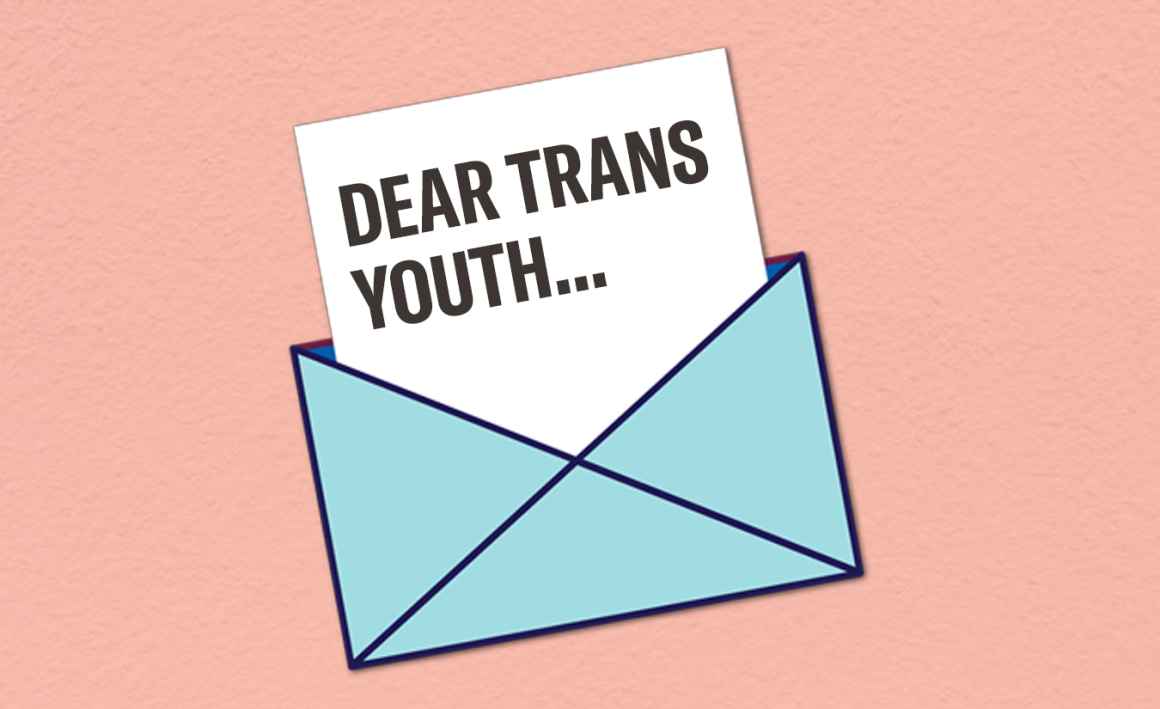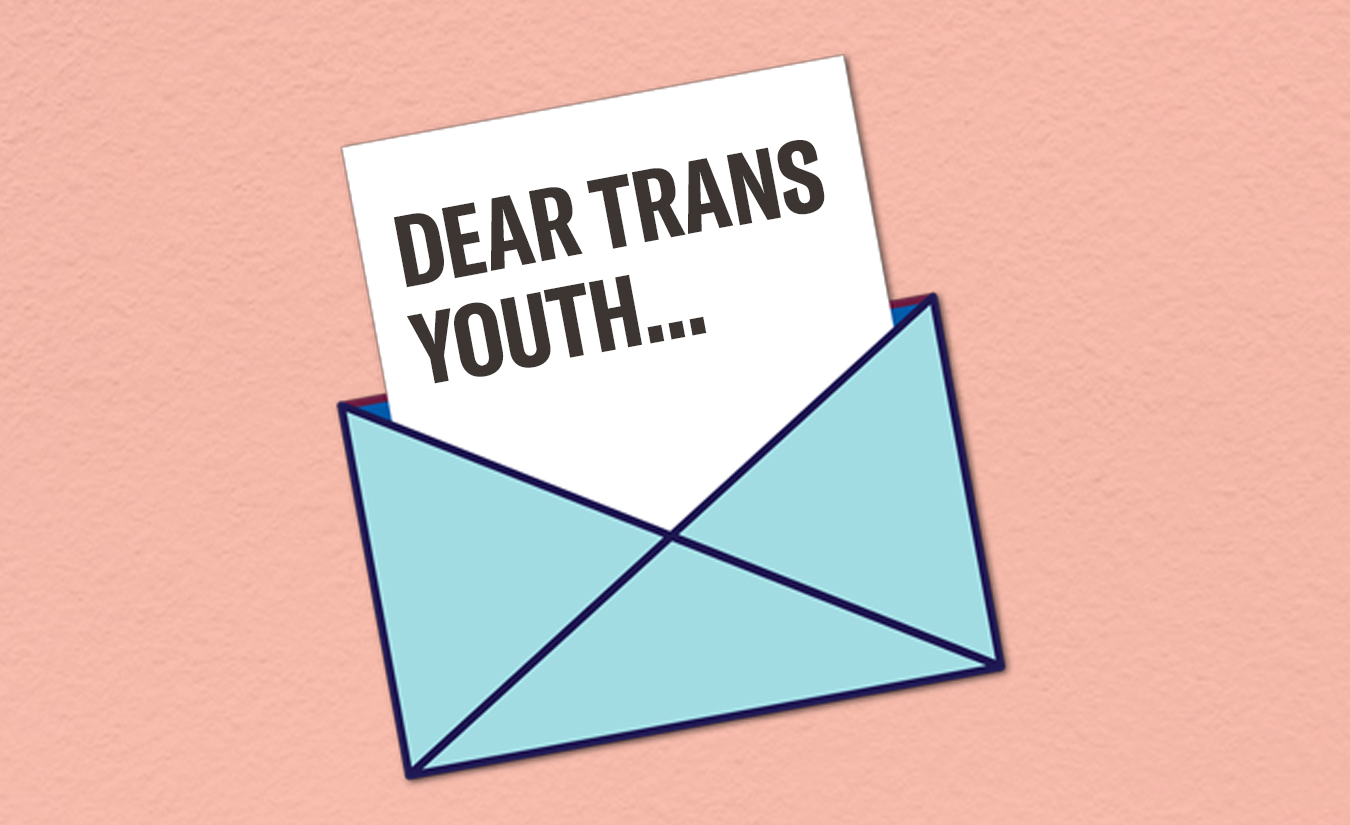
I hope you feel the love and support we have for you. We see you, and we won't stop being there for you no matter what.
-Sarah, Indianapolis
So much love to all of you!! We see you, we support you. Don’t let the haters get to you. You are deeply loved and valued!
-Emily, Jasper
I stand with you, march for you, and believe in your power. This is a scary time, but I have to believe that things will get better. Please stay safe and surround yourself with others that support you. Continue to live authentically and follow your heart. The LGBTQ+ community is rooting for you!
-Claire, Indianapolis
You are valid. You are loved. You are deserving of a full life, a safe life, and the right to be your true, authentic self.
-Amanda, Whiteland
Trans people have always and will always exist. We belong, we are strong, and we are human. Trans people are valid. Lawmakers can pass discriminatory laws but they cannot ban our existence.
-Cyrus, Lafayette
You are just as you should be and worthy of love and safety. You belong.
-Abigail, Indianapolis
I know how scary it is right now—I’m a trans man in Indiana. It’s heartbreaking to see how our legislation is failing us.
I see you, and I support you. There are so many people who don’t feel like this about us trans folk. It’s not normal to be so obsessed with other people’s lives the way that transphobes often are. You keep shining bright!
You’re an inspiration to us all!
-Vic, Warsaw
Hi! I want you to know that you are a beautiful and brave soul. Your existence makes the world a brighter place. Thank you for being you!
-Rea, Warsaw
I know times are tough right now but I've got your back and we'll all make it through this.
-Lex, Greenfield
I’m heartbroken about what is happening in Indiana and elsewhere in this country right now. Please know, that there are people out there, who are on your side. We see you, we appreciate you, we want you to thrive and feel safe. We are speaking out on your behalf. Don’t get discouraged. We will get through this. Together.
-Suin, Fort Wayne
You are loved. You belong. I’m thankful you’re in our world. I see you. I will defend you!
-Jonathan, Indianapolis
You are perfect and you are loved. You are so brave. We stand with you and support you always.
-Marta, Indianapolis
It may not feel like it, but there are many, many loving people in this state who have your back. You are beautiful. You are amazing. You are enough. You are loved.
-Meg, Brownsburg
Please know that you are not alone and that you have my support and love. I will advocate for your right to be your authentic self and to receive the health care you need to live a full and happy life.
-Sabrina, Indianapolis
You are brave and strong, and you should never be ashamed of who you are. You are perfect just the way you are.
I know that there are people who will try to put you down, but you should never let them get to you. You are strong and capable, and you can overcome anything.
I am so proud of you for being true to yourself. You are an amazing person, and I know that you will do great things in this world.
-Erica and Karen, Fishers
As impossible as it might seem right now, it WILL get better. You are worthy of love, you matter, and you are meant to be, exactly as you are.
-Alex, Michigan City
Things may be scary now, but it won’t be that way forever. Remember, you are enough and always have been enough. Live your life authentically to you and I will be here supporting you and rooting for you every step of the way.
-Taylor, Indianapolis
I see you and I support you. Things are ridiculously tough. You are not alone. You deserve the right and should have the right to live as your authentic self. I stand with you. We honor you on Transgender Day of Visibility and every day.
-Megan, North Vernon
Hello! You are so loved just the way you are. Be you the best way you can! Much love!
-Paige, Elkhart
I wish you all the best. I hope you are safe, happy, and get to choose to present your authentic self when you are ready to share who you are. It took me decades to have a word for what I am — non binary. And then another year or so to share it with a few trusted people. And longer to come out at work.
I'm here, out, and vocal to make sure that younger queer folks get a chance to do the same thing.
All the best!
-Jen, Granger
I stand with you in your journey to recognition and acceptance. There are Hoosiers who have your back. Don't let discouragement and despair win.
-Margie, Indianapolis
Dear trans youth, we are change, we are the future, we are not done and we are not going anywhere. You are loved and wanted. You are important and beautiful just as you are.
-Greyson, Brownsburg
I'm sorry our government is sending the wrong message. You are seen. You are valuable. You belong here.
-Kristene, Fort Wayne
I'm writing you in honor of Transgender Day of Visibility to let you know that you are not alone. Even if things are scary right now, I believe that transgender youth deserve to live full, equal lives as their authentic selves. When I see the youth of today, and I'm so encouraged. People in the LGBTQIA community have such an important place in our community and in our world. Keeping being authentically you and you will make the difference.
I want you to know that I see you, I hear you and I will do everything in my power to support you and be an ally. Believe me when I say there is a lot more love and acceptance in our world than the few loud voices of hate. I love you and support you.
-Chris
Date
Friday, March 31, 2023 - 9:00amFeatured image


